Living above means tanked Guyana’s economy in the past, VP vows country not returning to that era
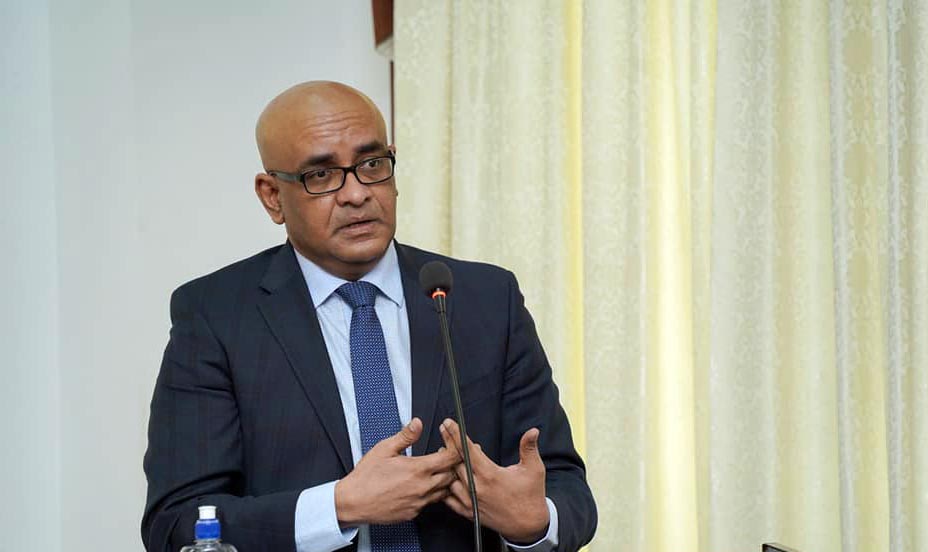 Guyana's Vice President, Dr. Bharrat Jagdeo.
Guyana's Vice President, Dr. Bharrat Jagdeo.In a scathing rebuke of an opposition proposal to give every Guyanese adult GY$200,000 (US$1000) on a quarterly basis, Vice President Dr. Bharrat Jagdeo said Guyana cannot build its future if it takes such an approach.
The proposal is in the form of a motion filed with Guyana’s Parliament and was made as a possible solution for Guyanese in this period of inflated commodity prices.
Dr. Jagdeo said the government is willing to take on suggestions that would bring relief to the people and are sustainable. In this regard, he said the motion is designed to excite, but that it is not practical nor wise.
“That will need probably US$500M-US$600M, and it wouldn’t leave anything else to do any long-term development of this country,” Dr. Jagdeo said in a recent virtual interview posted on Facebook.
He said this philosophy of living above one’s means is exactly what caused Guyana’s economy to suffer economically, making it one of the poorest countries in the hemisphere by 1992 – “That you can eat every cent that you earn, and even more than you earn, so you have to borrow to eat now than to prepare for the future.”
This is not, Dr. Jagdeo stressed, the philosophy of the People’s Progressive Party Civic (PPP/C).
Guyana has started to receive large sums from the offshore oil production operations and the government says this should be used in a sustainable way to support national development and the diversification of the economy.
The Vice President explained that this involves developing healthcare, education and other critical areas. Rather than cash transfers, he said if government found for instance, that there was a need for 50,000 scholarships, it would invest in that so that people can earn more.
“The highways and the power plants and the ports and all the physical infrastructure, and support [for] the industries, so that when the oil money goes, these sectors will take over and create employment for our people, so that we don’t have problems like some of the other countries have, [like] massive unemployment and loss of welfare,” he pointed out.
Trinidad and Tobago, Venezuela and Nigeria were some of the countries he explained did not handle their oil boom wisely.
The Vice President was adamant that Guyana should not allow itself to fall prey to the Dutch Disease.



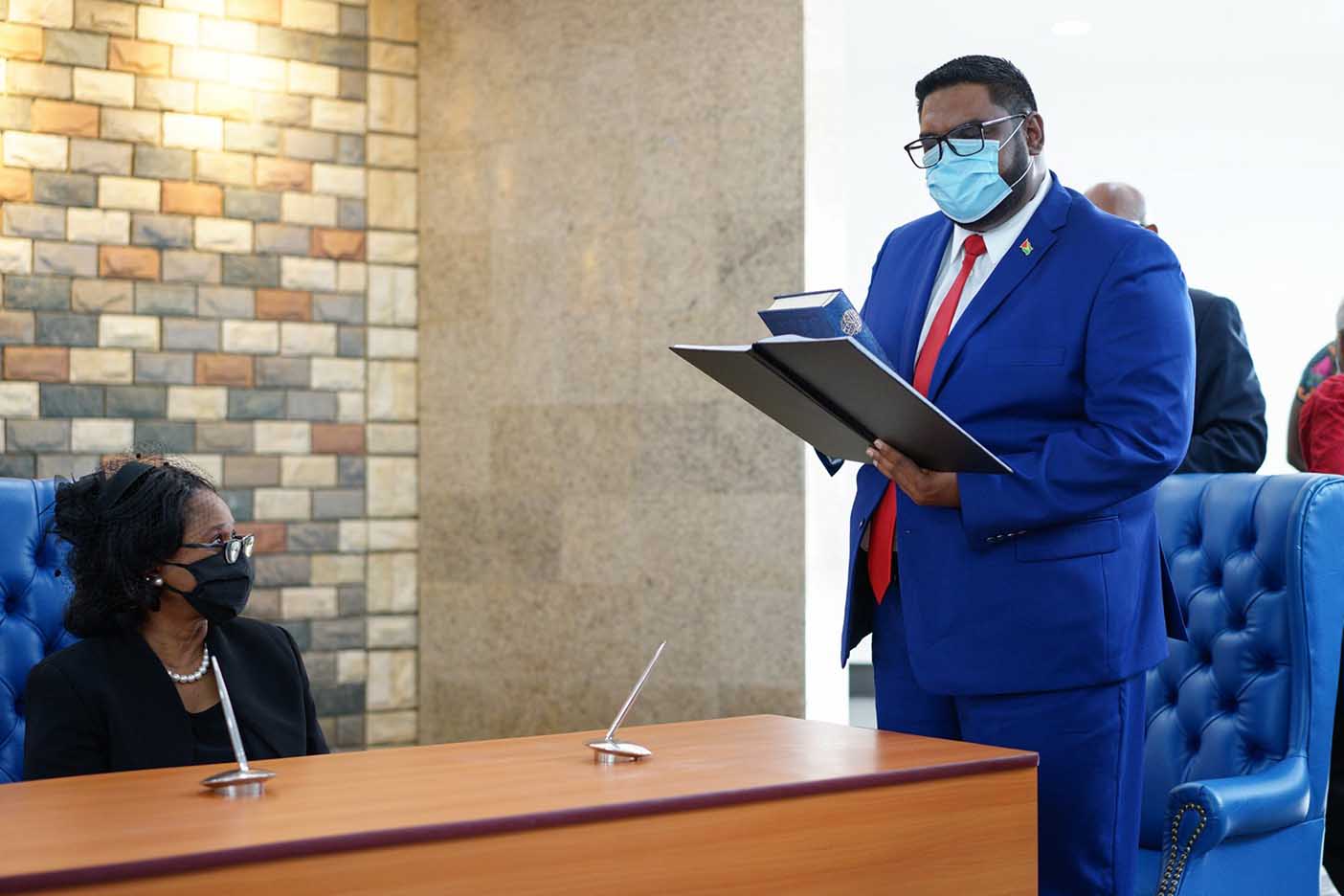 Chancellor of the Judiciary, Justice Yonette Cummings-Edwards swears in Dr Mohammed Irfaan Ali as the 9th Executive President of Guyana at the Arthur Chung Conference Centre yesterday.
Chancellor of the Judiciary, Justice Yonette Cummings-Edwards swears in Dr Mohammed Irfaan Ali as the 9th Executive President of Guyana at the Arthur Chung Conference Centre yesterday.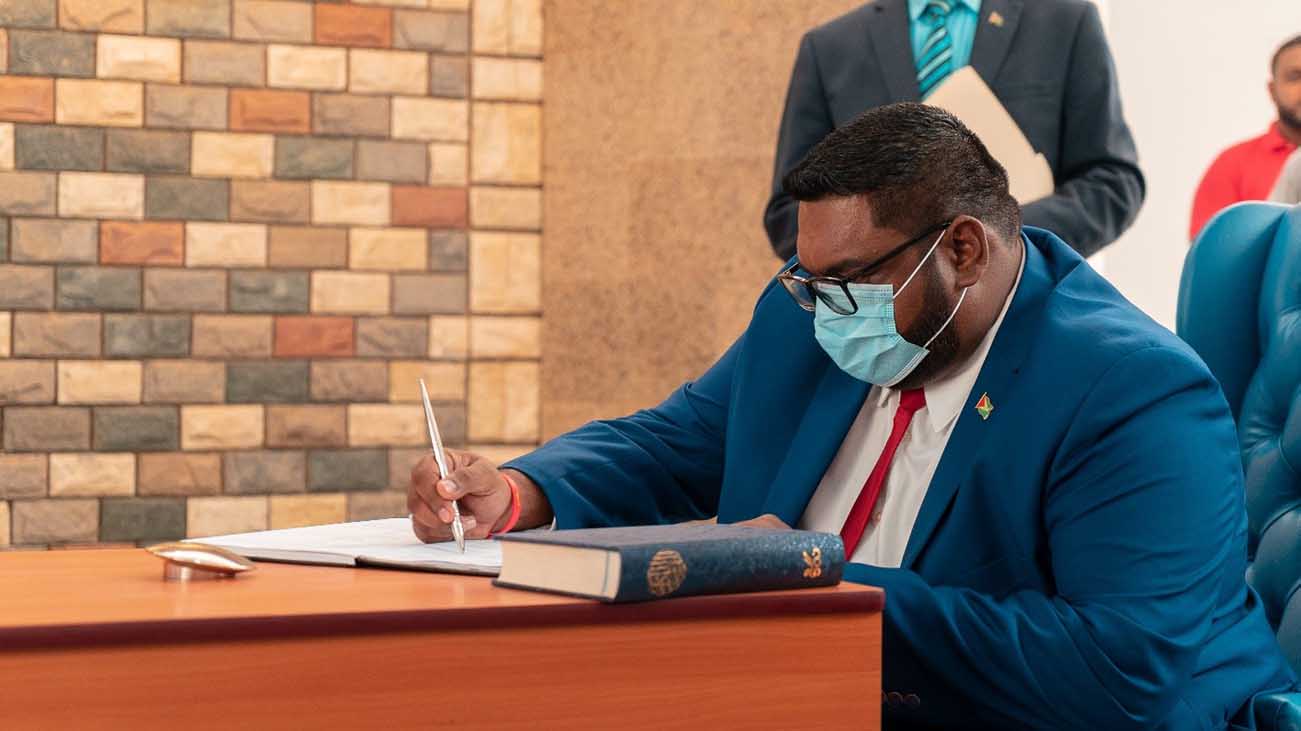
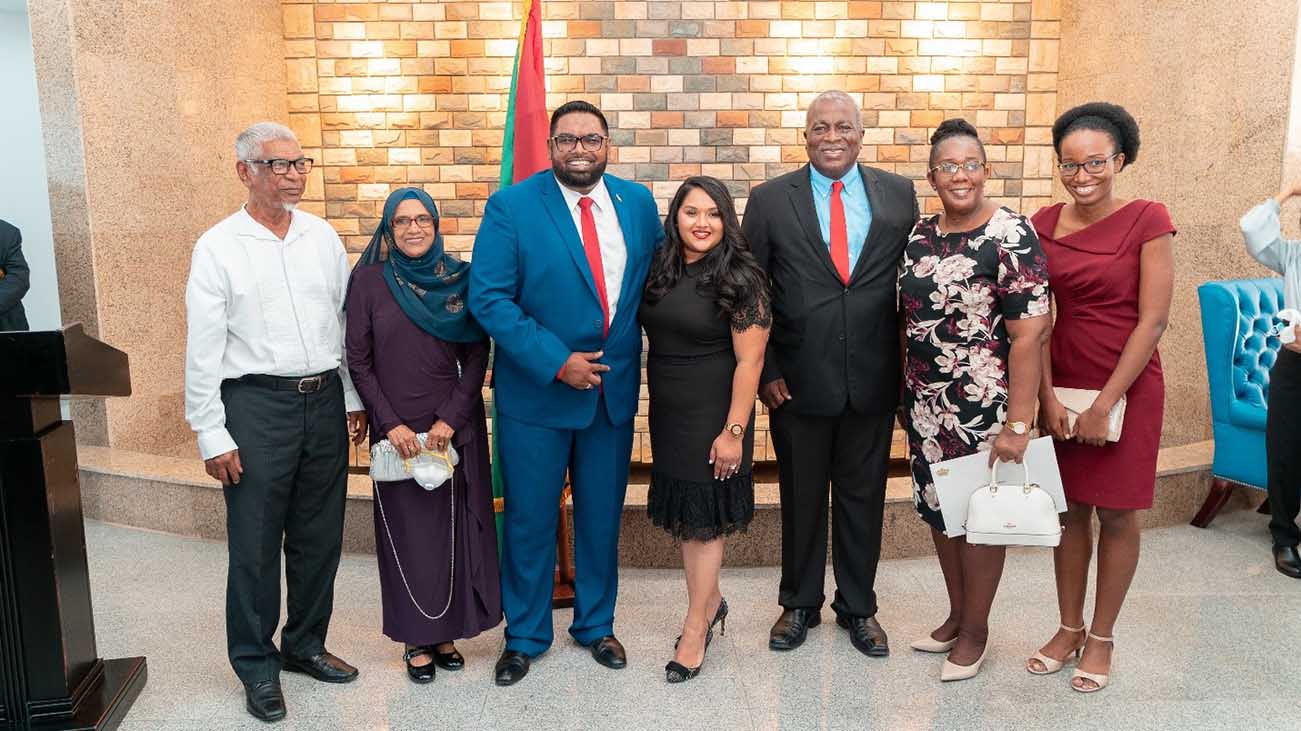
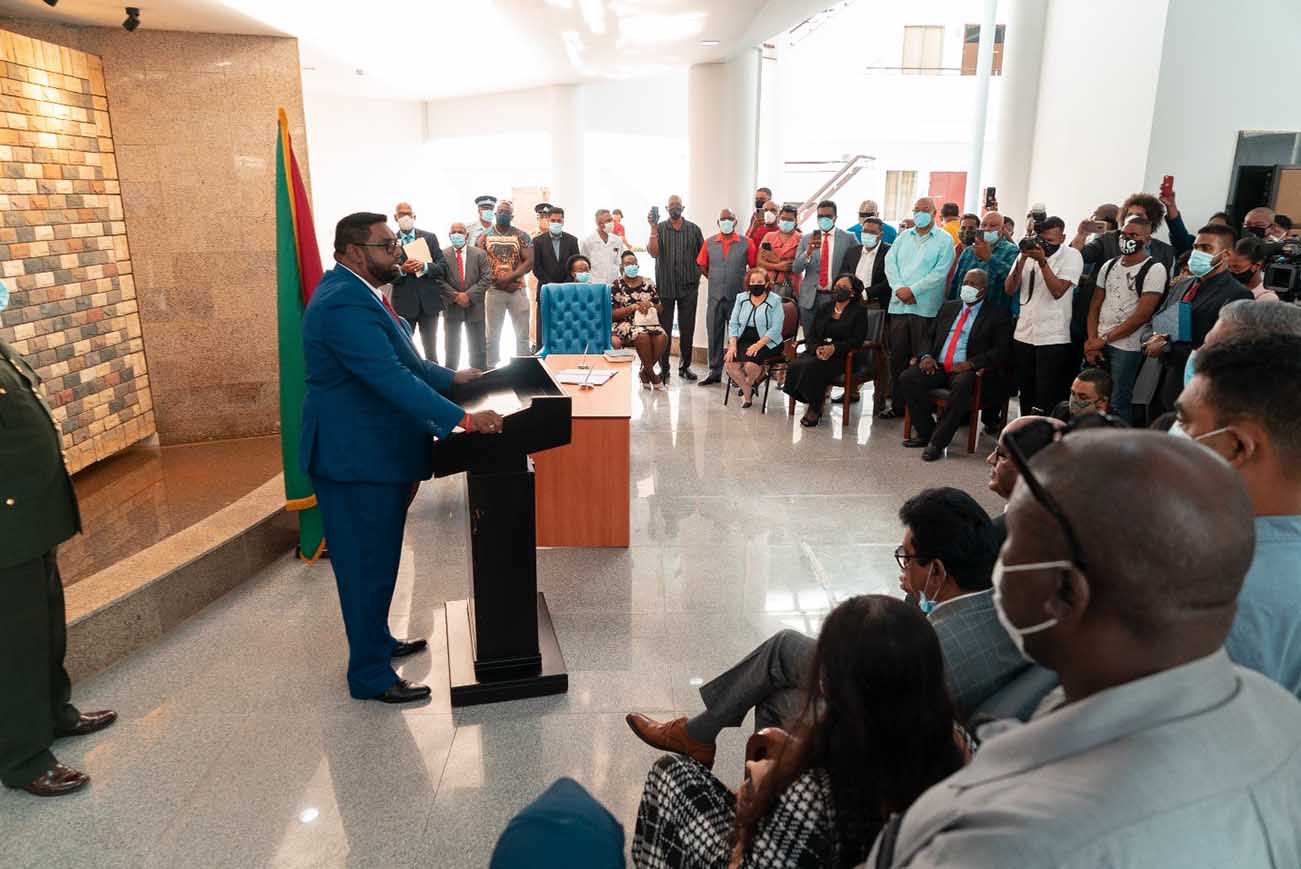
 David Granger
David Granger